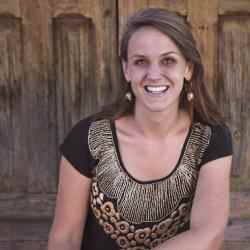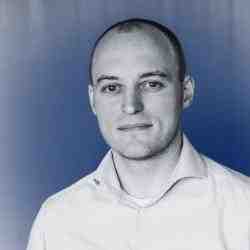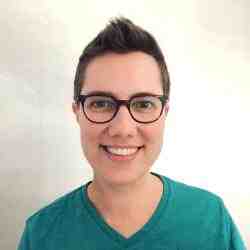Introduction
Zoltán Nagy is introducing Eastern medical alternatives into the Hungarian medical community, which is struggling to deal with a high incidence of disease and an aging population.
The New Idea
Zoltán Nagy has established the first non-Western medical program in Hungary to be approved and supervised by Hungarian medical authorities. The program is staffed by doctors from Korea and Mongolia who are well versed in Eastern medical techniques which utilize natural, non-invasive treatments. These doctors work with Hungarian doctors to determine the best course of treatment and to see that the treatment is working.
Zoltán's program is a cost-effective alternative health care system. It provides comprehensive, high-quality health care for Hungarians who otherwise might go untreated. Moreover, the center is providing training for Hungarian doctors who are interested in incorporating Eastern methods of treatment into their practices. The center serves as a pilot and model for the investigation of Korean/Mongolian medicine in Hungary and in the broader European health care system.
The Problem
Hungary leads Europe in the proportion of its population who suffer from cancer, circulatory disease and digestive tract disease. Contributing factors include unhealthy life habits, such as heavy smoking and high alcohol consumption, and environmental degradation and high stress due to the transition to a market economy as many people are working two or three jobs just to support their families. According to statistics provided by the World Health Organization, 267,000 Hungarians died of cancer in 1993 and another 751,000 of circulatory diseases.
Under the Communist regime, free health care was provided for the entire population. Unfortunately, during the subsequent period of economic and social transition, the state has found it increasingly difficult to provide medical care for the public and has discontinued universal free coverage. Consequently, there has been a steady rise in the price of health care for the consumer and the average person is finding it more and more difficult to pay for it. This crisis accelerated in 1995, when the government terminated free dental treatment and reduced government supplements for medicine and drugs by more than half. The people hardest hit by this drastic reduction in government expenditure for health care are the elderly pensioners who have fixed incomes. Unfortunately, this is the same group which is most in need of medical care.
Under the current system there is little emphasis on prevention and early treatment of illness. There are no public education programs to promote a healthy lifestyle and its connection to better health. Lung cancer is common but there is little public education about smoking, and the number of smokers in Hungary is high. Public health philosophy is crisis-oriented, which leads to large numbers of seriously ill patients burdening an already chronically underfunded and understaffed hospital system.
The Strategy
Zoltán believes that ultimately the methods used in his project could remedy or help prevent most illnesses for which there is presently either no treatment available through established methods or a treatment which is too expensive for most people. With the support of the Hungarian medical community, in a safe and controlled setting, his project will provide a new and needed service that could fundamentally change attitudes toward health care in Europe and other Western countries.
For Zoltán's project to succeed, it was crucial that it receive support from the medical establishment, and he took advantage of his own personal reputation to gain it. Medical professionals respect Zoltán because he does not purport to be a doctor but presents himself solely as a facilitator. Zoltán's project is now backed by the Hungarian Ministry of Health and the newly created Professional Board of Traditional Medicine, which was formed by the government to study the feasibility of introducing traditional medical techniques into the Hungarian health care system. The new board was established by the government as a result of Zoltán's innovation; it gives an institutional base to his model and also provides the facilities to do research on its effectiveness. Zoltán considers these endorsements a critical component for the long-term success of his project. They give his project legitimacy, which makes it easier to attract both patients and doctors. In addition, the Pulmonology and Cancer's Institute have agreed to provide laboratories and technicians to conduct tests and research. This is the first time that the Hungarian medical establishment has agreed to monitor and work with traditional medicine practitioners.
The project has brought three Korean doctors to Budapest on a rotating basis and is arranging for an additional two Mongolian doctors. With the help of translators, the staff has initiated the training of Hungarian doctors in traditional medical techniques such as massage, acupuncture, acupressure and herbal medicines. In 1996, approximately 120 doctors received training and have begun to treat patients using a combination of Western style medicine and the Korean/Mongolian techniques. For example, a person with circulatory problems may begin a regimen of massage therapy combined with more conventional medications.
The principle diagnostic techniques used by the non-Western doctors are urine analysis, tongue examination and pulse readings. All three techniques can reveal imbalances and disorders in a patient who would be considered healthy by the measurements of conventional Western examinations. Upon detection of a problem doctors recommend dietary and lifestyle changes which will help return the body to balance. According to information provided by the Mongolian Institute in Ulan Bator, these methods are very effective for the treatment of ulcers, diabetes, arthritis, hypertension, heart disease, hepatitis, impotence and obesity.
In addition to its provision of early detection and reversal of many unhealthy conditions, the Korean/Mongolian techniques of Zoltán's model can provide medical care which is cheaper and simpler because the need for surgery and other radical treatments is greatly reduced. To lower high blood pressure, for example, Korean doctors recommend a combination of herbs which is less costly than the conventional medicines prescribed by Hungarian doctors. This is very important, because medical treatment has become too expensive for many Hungarians, particularly the elderly.
The European Commission has already acknowledged Zoltán's work as important, and Zoltán is participating in the Commission's "Unconventional Medicine in Europe" project. The World Health Organization has stated that Korean/Mongolian medicine should be investigated and that Zoltán's project will serve as an important model for wider application of his approach, because it will provide the necessary analysis of the applicability of Eastern treatments in a European setting. Zoltán hopes to eventually integrate his work into the Hungarian healthcare community and to establish a network of clinics throughout the country and the region.
The Person
At university, Zoltán specialized in Asian studies and languages, and before he started his project he worked mainly as a translator for the Hungarian government. He is quite gifted with languages and speaks English, Russian, Tibetan, Mongolian and Turkish. Years ago, during a university-sponsored study tour of Mongolia, he was exposed to Mongolian medicine for the first time when he sought the advice of a Mongolian doctor for his own diabetes. As a result of the doctor's prescription of a traditional Mongolian treatment, Zoltán was able to reduce his insulin intake by half. He became convinced that traditional diagnostic methods and treatments are able to detect illness at a much earlier stage than techniques commonly practiced in Hungary and that they can offer viable alternative treatments.
Soon after his return from Asia, Zoltán began to further investigate Eastern medical techniques. At that time, he worked for the Hungarian Ministry of Health and was therefore able to organize a small group to study the applicability of Korean/Mongolian medicine in Hungary. He wrote a book on Tibetan medicine. As he slowly built support within the Hungarian medical community for Korean/Mongolian medicine, Zoltán took advantage of the fact that Hungarians consider themselves an Asiatic people whose nomadic origins are east of the Urals. As a result Central Asian cultures and lifestyles fascinate many Hungarians, including Zoltán. It is perhaps because of this that some within the Hungarian medical community were interested in Zoltán's work.
After winning the support of a Hungarian Buddhist community which agreed to help provide the ingredients for natural medicines, such as herbs and plant roots commonly grown in Buddhist communities, Zoltán created the Tibetan Medicine Foundation to support his dream of bringing Korean/Mongolian medicine to Hungary and Europe.




